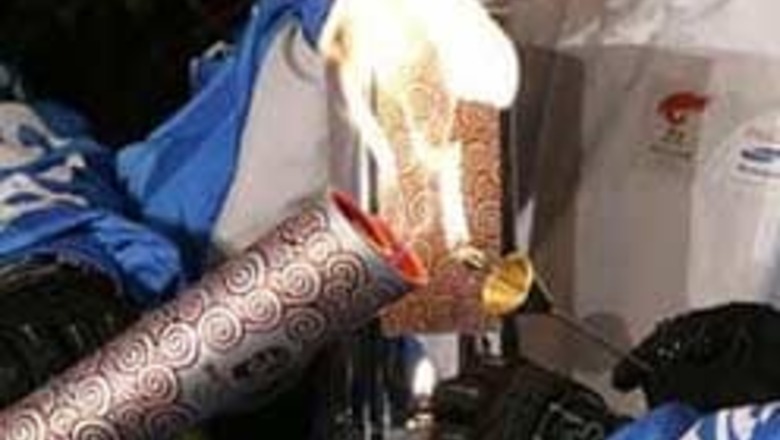
views
Beijing: Morning haze hung over Beijing on Monday, the first workday for restrictions on car use under a bold plan to clear the Olympic city of its notorious smog-choked skies.
Under a two-month plan that started Sunday, half of the capital's 3.3 million cars will be removed from city streets on alternate days, depending on whether the license plate ends in an odd or even number.
It could be several days before the impact of the cleanup plan, which also includes cutbacks on construction and factory closures, is noticeable. The government has not made public a specific target for vehicle emission levels, one of the city's biggest sources of pollution, or said how it will measure air quality.
Experts say the plan could still go wrong because unpredictable winds could blow pollution into Beijing from other provinces or the lack of wind, common in August _ could enable local pollution to build up.
However, Sun Weide, spokesman for the Beijing Olympics organizing committee, was optimistic.
''It can be easily felt that traffic is less heavy now and the number of vehicles on the road is clearly smaller,'' Sun said. ''The weather has been good since yesterday.''
Traffic still snaked along main thoroughfares and highways Monday, but moved at a steady pace.
''Before we would be at a dead standstill,'' said a taxi driver who would give only his surname, Zhang, as he steered around cars. ''Now it's better.''
Drivers with even numbered plates were forced to take public transportation, where crowds remained surprisingly manageable. The subways Monday likely were not as crowded as expected because employers have been asked to stagger work schedules, and public institutions will open an hour later than normal.
''It seems that the subway isn't as busy as I expected. There are fans and air conditioning, so you don't feel very hot,'' said Chen Songde, who normally drives to work in Beijing.
Two new subway lines and an airport rail link were opened over the weekend, with the projected number of passengers on the three routes expected to reach 1.1 million daily during the Olympics.
In all, eight lines will transport up to 5 million people daily during the Olympics, the company that runs the Beijing subway said Monday.
Besides the traffic plan, chemical plants, power stations and foundries had to cut emissions by 30 percent beginning Sunday. Dusty, noisy construction in the capital was to stop entirely.
Those caught driving on days they shouldn't will be fined $14, a pricey penalty even for Beijing.
On many days, Beijing's skyline can barely be seen because of a thick, gray-brown haze that hangs over the city.
Already, many competitors in the Aug. 8-24 games are choosing to train away from Beijing, and International Olympic Committee President Jacques Rogge has said that outdoor endurance events lasting more than an hour will be postponed if air quality is poor.
The world's greatest distance runner, Haile Gebrselassie of Ethiopia, has bowed out of the marathon event because the city's pollution irritates his breathing.
Some 300,000 heavily polluting vehicles _ aging industrial trucks, many of which operate only at night _ were banned beginning July 1.
The government has also improved public transportation options for the estimated 4 million extra people who will be off the roads because of the traffic plan, the official Xinhua News Agency said.
The city plans to add up to 3,000 more buses by the time the games start, raising the daily capacity for passengers from 12.5 million to 15 million, Xinhua said.




















Comments
0 comment